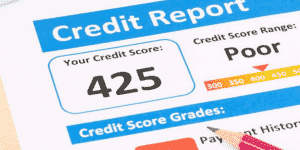Divorce is often a messy affair, and while nobody wants to deal with it, sometimes it’s a necessary step. Here’s how to prevent credit during divorce.
One of the reasons why divorce is so messy is because of the financial aspect. You and your spouse are entwined financially, and separating all of the finances is a very difficult and tedious process that can take months, if not years, to do properly.
Many credit problems arise during divorce and they’re often not thought about until they happen. However, these problems are, for the most part, completely preventable. There are things which helps in rebuilding credit after divorce. Here’s how you prevent them.
Get a Copy Of Your Credit Report & Review It Carefully
This is the most important step. See which accounts are on your credit report and thus will affect your credit if they go late. Know what can be disputed on a credit report?
Without reviewing your credit report, you won’t know how problematic the credit problems can become for you. You might not remember what debt you cosigned for your spouse, or which items were shared.
Your credit report won’t show your spouse, so you’ll have to figure out which items are joint items. One of the thing remember to prevent credit during divorce.
Close All Joint Accounts
Because creditors don’t care whether or not a divorce occurred, joint accounts may become a serious issue.
If you and your ex have a joint account, and your ex had been responsible for making the payments, you’re held liable if your ex stops making payments. For this reason, it’s better to just close all the joint accounts before they become a problem.
Closing the joint accounts will result in a short term hit to your credit score (or, if you’re paying off a debt in full, may increase it).
Your ex might not agree to closing the accounts. In this case, it may be necessary to get the courts involved. Closing out all joint accounts help in prevent credit during divorce.
If A House Isn’t Being Sold… Refinance The Mortgage.
The court, or your prenup, may decide that one party gets a specific piece of property. If this is the case, and the property had a mortgage with both people on it, it needs to be refinanced. There is a guide to mortgage refinancing.
Generally, it’s better to liquidate the home and get rid of the mortgage. But sometimes this doesn’t happen.
Simply transferring ownership may not work, as the credit bureaus may never learn about it & the item might stay on both people’s credit reports.
Refinance the mortgage and put it only in one person’s name. This may result in an increased interest rate if the other party has worse credit; however this is a necessary step to protect yourself if you have to give up the house. One of the thing to keep in mind helps in prevent credit during divorce. There are credit problems which can ruin your mortgage application.
In Summary
- Divorce is a hard part of life, and it’s important to not make it any harder on the rest of your life.
- Review your credit report and figure out which accounts are joint.
- Close the joint accounts, as these often cause problems.
- Refinance the home if one person is getting it.






